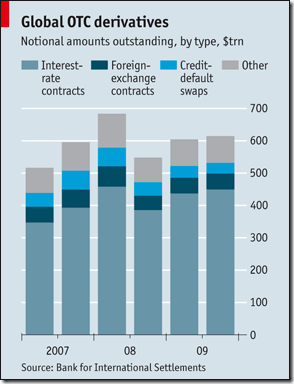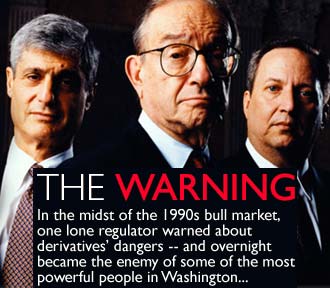

My Two Cents - "Crisis or Coup?"
12/3/2010
As some of the disclosures required by the financial reform bill are made, everyday Americans are starting to figure out what many zealous economy and market watchers have known since 2008: The Fed’s rescue programs weren’t just aimed at domestic banks with Manhattan headquarters. The aid stretched far into the reaches of everyday America, with the recipients of approximately $885 billion in loans still not disclosed.
For those who had not already arrived at this conclusion, it should now be crystal clear: the collapse of 2008 was a mini financial coup d’ etat. The very institutions and individuals charged with the oversight of our financial system were the same people who were helping to blow up asset bubbles and perpetuating cheap, easy credit. I think that it is very important to understand that these folks have been systematically doing the exact same thing to our willing government in the form of debt monetization. In the 1990’s and forward, they sucked in a willing consumer with massive expansion of available credit and sleazy marketing campaigns aimed at convincing people that it was really ok to owe $15,000 on a credit card at 19.9% interest.
The American people and their government both readily embraced the concept of deficit spending and debt accumulation as a viable path to prosperity. The Federal Reserve and its member (owner) banks have been the primary facilitators in this great transition from prosperity to poverty. Its actions in 2008 and 2009 were nothing more than an attempt to snare even more control of the financial system and the economy, while kicking the can down the road just a little further. Banks have gone from their traditional role as financial intermediaries to micromanagers of the economy. And this has all taken place in a little over a generation.
The startling part of what has transpired is that more and more of our economic destiny than ever now falls under the direct control of a panel of unelected and virtually unaccountable banking aristocrats. These bankers made decisions in 2008 not only to shower electronic dollars created from nothing on Wall Street banks, but on international banks, and companies like Harley Davidson, Caterpillar, GE, and Verizon. GE is an easy one since it has a huge exposure to default risk through its banking operations. But what of the rest? These supposedly healthy companies couldn’t make it through a few months of tight credit without running to the Fed for assistance?
Here’s a breakdown of the assistance: The Fed purchased commercial paper (CP) from Harley Davidson 33 times in 2008 and early 2009 for a grand total of $2.3 Billion. It purchased commercial paper from Verizon twice for a total of $1.5 Billion. GE was the big winner at the time, selling to the Fed 12 times for a grand total of $16 Billion. However, the biggest winner of all is Uncle Sam who is has already sold and will continue to sell to the Fed for at least another $600 Billion.
The mere existence of this activity should in and of itself reveal the very phony nature of a fiat paper money system. However, in all the mainstream news articles (many of which are owned by GE incidentally), nobody has bothered to ask where the Fed got the $3.3 Trillion it used to conduct the bailouts.

Putting in Perspective
Back in April of this year, Will Hutton of the London Observer wrote:
“The global financial crisis, it is now clear, was caused not just by the bankers’ colossal mismanagement. No, it was due also to the new financial complexity offering up the opportunity for widespread, systemic fraud. Friday’s announcement that the world’s most famous investment bank, Goldman Sachs, is to face civil charges for fraud brought by the American regulator is but the latest of a series of investigations that have been launched, arrests made and charges made against financial institutions around the world. Big Finance in the 21st century turns out to have been Big Fraud. Yet Britain, centre of the world financial system, has not yet leveled charges against any bank; all that we’ve seen is the allegation of a high-level insider dealing ring which, embarrassingly, involves a banker advising the government. We have to live with the fiction that our banks and bankers are whiter than white, and any attempt to investigate them and their institutions will lead to a mass exodus to the mountains of Switzerland. The politicians of the Labour and Tory party alike are Bambis amid the wolves.
Just consider the roll call beyond Goldman Sachs. In Ireland Sean Fitzpatrick, the ex-chair of the Anglo Irish bank – a bank which looks after the Post Office’s financial services – was arrested last month and questioned over alleged fraud. In Iceland last week a dossier assembled by its parliament on the Icelandic banks – huge lenders in Britain – was handed to its public prosecution service. A court-appointed examiner found that collapsed investment bank Lehman knowingly manipulated its balance sheet to make it look stronger than it was – accounts originally audited by the British firm Ernst and Young and given the legal green light by the British firm Linklaters. In Switzerland UBS has been defending itself from the US’s Inland Revenue Service for allegedly running 17,000 offshore accounts to evade tax. Be sure there are more revelations to come – except in saintly Britain.”
Hutton pretty much summed up what most of the sentiment here in the US is: The crisis of 2008 is starting to stink – bad. Remember that, at the time, the Fed assured everyone that it was saving the financial system. How many companies did the Fed end up buying CP from anyway? I don’t think for a minute that we even NOW have the full story on what went on. And that begs the question how many other firms were allowed to languish and become ripe for government takeover. Not to mention the small businesses that didn’t have access to the Fed’s supposed charity. And they still don’t since many are still unable to get credit, except via their small business credit cards and the accompanying astronomical rates. More than two years after the beginning of the credit crunch, this situation has still not been resolved. This is allowed to continue while banks rake in huge profits by skinning fractions of pennies from each other by front-running transactions on the exchanges. The same folks have been amassing huge reserves at the Fed itself. I have been begging people to ask the important questions for two years now: Where did the bailout money go? We now have what at best can be considered a partial answer there. Why is the Fed paying banks to keep reserves at the central bank and incentivizing them to do so by paying interest? This is a very important question given the fact that Bernanke’s talking points have centered on making credit available to small businesses!
There are two main (and possibly more) reasons for this accumulation of reserves. The first is that banks are lying through their teeth and expect further massive losses from bad loans, bad bets, and trillions more in OTC derivative beatings. The second potential reason is that banks (and the Fed) are preparing for a fire sale of the American economy. This is by far the worst of the two scenarios and would fall squarely into the category of a financial coup d’ etat.


The bottom line in all of this is that eventually a critical mass is reached and the truth is demanded. Even then, it will be slow to come out, and will be a process. We’re lucky if we know 10% of what went on during the second half of 2008. If we want the rest we’re going to have to fight tooth and nail for it. Above all else the financial establishment is well versed in self-preservation tactics. However, what we do know certainly makes it clear that the survival of the financial ‘system’ was put well ahead of the economy that should be sustaining it. Not the other way around.
Until Next Time,
Graham Mehl is a pseudonym. He is not an ‘insider’. He is required to use a pseudonym by the policies of his firm when releasing written work for public consumption. Although not an insider, he is astonishingly bright, having received an MBA with highest honors from the Wharton Business School at the University of Pennsylvania. He has also worked as an analyst for hedge funds and one G7 level central bank.
Andy Sutton is a research and freelance Economist. He received international honors for his work in economics at the graduate level and currently teaches high school business. Among his current research work is identifying the line in the sand where economies crumble due to extraneous debt through the use of economic modelling. His focus is also educating young people about the science of Economics using an evidence-based approach.